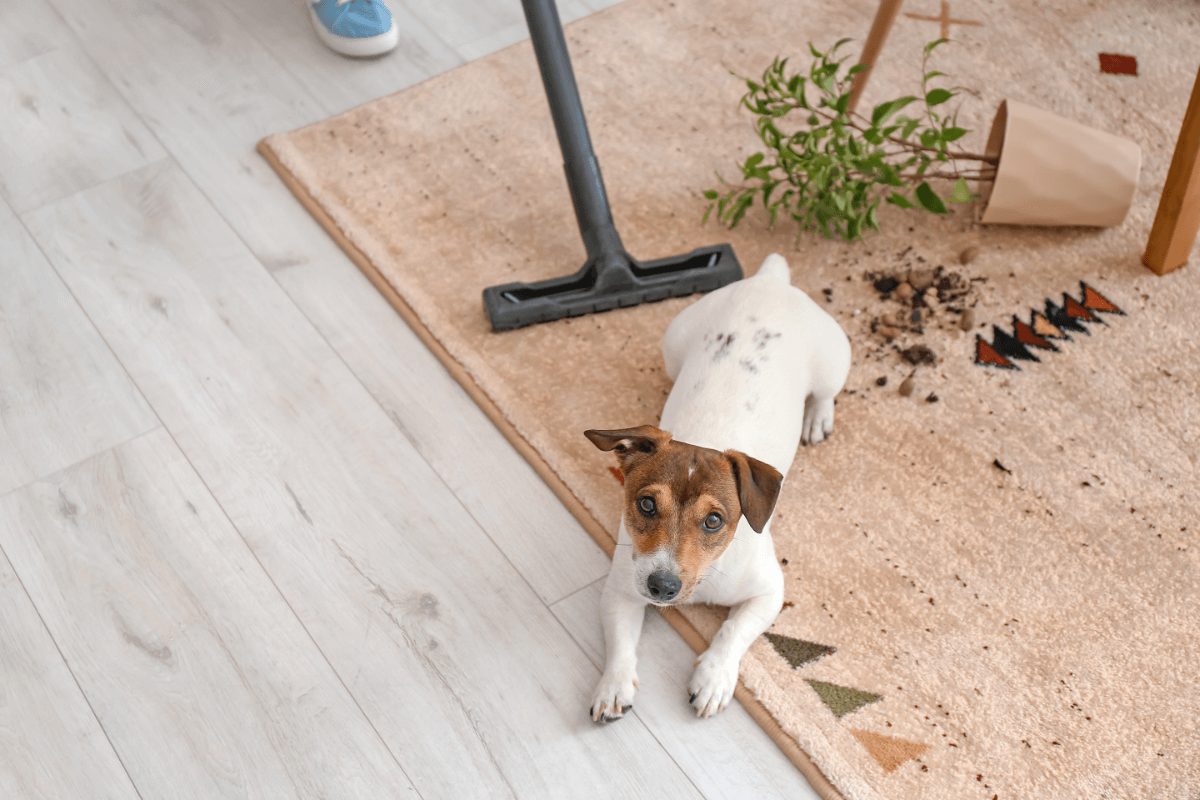Many dogs become anxious when separated from their owners and are left alone. Separation anxiety can be just as stressful for pet owners as it is for dogs.
Find out how to tell if your dog is suffering from separation anxiety and what you can do to help them.
What is separation anxiety?
Separation anxiety occurs when a dog gets highly stressed when left alone. Dogs are a highly social species, so it’s not surprising that some struggle to cope when being left alone. It’s not clear-cut why some dogs suffer from separation anxiety and some don’t, as it can affect dogs of any breed or age. Some behavioural experts believe it can be triggered by a particular event, such as a change to the household, a bad experience when away from home, or even a lack of socialisation during the puppy stage.
One major trigger that has become quite noticeable over the past year or so has been the reduction of pet owners working solely from home. Dogs who were used to their owner being home all the time are now having to cope with more days home alone and are becoming highly stressed.
How do I know if my dog has separation anxiety?
Symptoms of separation anxiety typically occur when your dog becomes aware that you are about the leave the house, and during the time you are away. These behaviours can include:
- Increased barking or howling
- Shaking or shivering
- Continual pacing
- Destructive behaviour, such as chewing your belongings or digging up the garden
- Out-of-character toileting accidents
- Persistent licking or chewing of feet, legs or tail
- Scratching at doors and windows in an attempt to get out of the house
- Loss of appetite
- Vomiting and/or diarrhoea
How can I help my dog?
It’s important not to ignore your dog’s separation anxiety. The earlier you can seek help the better, as behavioural issues can escalate if left untreated.
If your dog is displaying anxious behaviour, the first step is to consult with your vet to rule out any medical issues such as illness, disease or chronic pain that may be causing the above symptoms.
At Moorabbin Veterinary Hospital, we offer comprehensive behavioural consultations to assess and address anxiety issues. The consult includes:
- An assessment to understand why the behaviour is occurring
- Behavioural/environmental modification recommendations
- Medication recommendations (if necessary)
- Owner education and advice
- Recommended follow-up actions
Some follow-up actions could include:
- Not making a big fuss when you leave for the day and when you return
- Where possible, keep to a set routine when it comes to eating, exercise, bedtimes and when you leave and return from work
- Exercising your dog in the morning
- Providing your dog with toys and puzzle feeders to keep them mentally stimulated
- Synthetic pheromones such as Adaptil
- Desensitisation training, such as picking up your keys or putting on your shoes and remaining in the house. Then advance to asking your dog to “stay” while going into another room and closing the door, gradually increasing the amount of time you stay apart
We’re here to help
Separation anxiety doesn’t have to be something you just live with. Early intervention and proper training can help manage and alleviate separation anxiety in many cases.
If you are concerned that your dog may be displaying separation anxiety, please bring them in for a consultation so we can formulate a plan to get them back to their happy and calm self as soon as possible.
To schedule an appointment at our Melbourne bayside vet clinic, you can book online or call our friendly team on 03 9555 4808.



